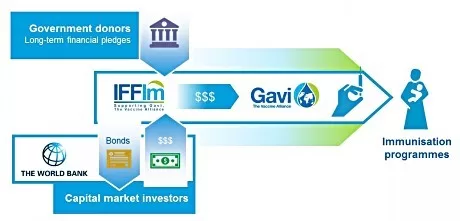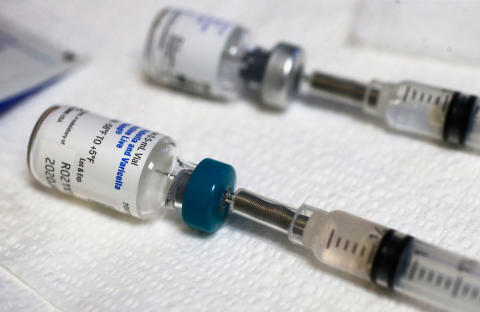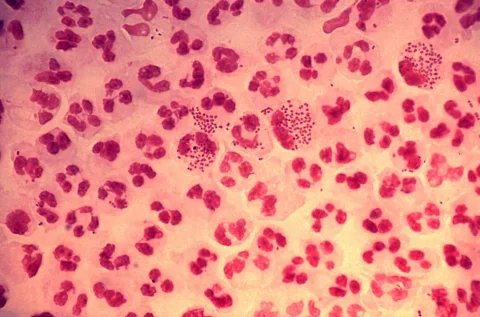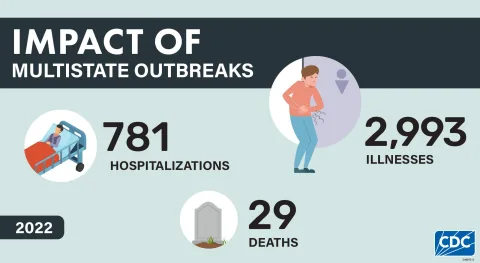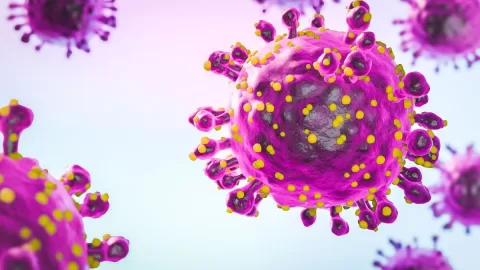Gavi vaccine funding is at the forefront of a heated debate following the recent announcement by US Department of Health and Human Services Secretary, Robert F. Kennedy Jr. This announcement signals the US’s withdrawal of financial support from Gavi, the Vaccine Alliance, pending a reassessment of public trust in their operations. Kennedy’s concerns center around vaccine safety—an issue he believes Gavi has inadequately addressed in its push for universal childhood vaccination. Despite the organization’s impressive achievements, including vaccinating over 1.1 billion children and preventing millions of deaths, Kennedy argues that a significant shift is needed for the US to renew its backing. As discussions unfold, the implications for global immunization efforts and the relationship between vaccine funding and safety continue to draw critical scrutiny from health experts and policymakers alike.
In light of the evolving conversation around vaccine funding, the Gavi Vaccine Alliance faces unprecedented challenges with its current financial backing under scrutiny. The commitment of resources from significant stakeholders, including the US government, is now intricately linked to perceptions of vaccine safety as articulated by figures like Robert F. Kennedy Jr. This development has broader implications not just for Gavi’s financial stability but also for the future of childhood immunization programs globally. With increasing calls for transparency and evidence-based practices, Gavi’s strategies for securing funds may need to adapt to address both public concerns and scientific validation. The ongoing dialogue emphasizes the vital role that safety and public trust play in the sustainability of vaccination initiatives aimed at protecting children from preventable diseases.
The Impact of US Support for Gavi Vaccine Funding
The recent announcement by Secretary of Health and Human Services Robert F. Kennedy Jr. regarding the withdrawal of US financial support for Gavi, the Vaccine Alliance, has raised significant concerns within the global public health community. This decision could potentially hinder vital childhood vaccination initiatives that Gavi has meticulously orchestrated since its establishment in 2000. With the US government having contributed over $8 billion to Gavi’s mission of immunizing children in low- to middle-income countries, losing this financial backing could compromise vaccine distribution efforts that have already saved millions of lives.
As the largest donor to Gavi historically, the US’s withdrawal not only affects vaccine supply chains but also has the potential to diminish trust in vaccination programs. As various global health leaders gather to strategize on raising funds to support these critical efforts, Kennedy’s stance highlights a broader debate over vaccine safety and efficacy. With estimated funding needs pegged at $9 billion for programs aimed at increasing access to immunizations, the implications of this funding withdrawal could resonate deeply, especially among vulnerable populations that rely on Gavi for necessary immunizations.
Vaccine Safety and Public Trust
Kennedy’s remarks underscore a growing sentiment among certain groups that prioritizes vaccine safety over immunization rates. Critics argue that a failure to address these concerns about the safety of vaccines, including those distributed by Gavi, could exacerbate hesitancy and resistance to childhood vaccination programs. Throughout his video address, Kennedy emphasized the need for Gavi to prioritize research and transparency regarding vaccine safety, a call that resonates with many parents concerned about the well-being of their children amid rising vaccination rates and government endorsements.
Despite these concerns, Gavi asserts that its policies and investments adhere to recommendations set forth by expert groups like the WHO’s Strategic Advisory Group of Experts on Immunization (SAGE). This connection to robust scientific review processes is intended to reassure the public that Gavi’s vaccine strategies are grounded in the best available evidence. By emphasizing scientific integrity and accountability, Gavi hopes to rebuild public confidence in vaccination while also addressing the rhetorical challenges posed by critics like Kennedy.
Gavi’s Response to Vaccine Efficacy Criticism
Gavi’s recent rebuttals to Kennedy’s claims around the diphtheria-tetanus-pertussis (DTP) vaccine highlight the organization’s reliance on rigorous scientific evidence when formulating its vaccination strategies. The claims made by Kennedy regarding higher infant mortality have been met with strong counterarguments by Gavi, which insists that the DTP vaccine’s protective benefits substantially outweigh its potential temporary side effects. Gavi maintains that the burden of these diseases is significantly more consequential in low-income settings compared to high-income ones, thereby solidifying its support for the DTP vaccine as essential for public health.
Gavi’s stance is further reinforced by global immunization experts who continue to endorse DTP vaccines, emphasizing their importance in high-risk environments. This unwavering support illustrates Gavi’s commitment to its mission which is founded on reducing childhood mortality rates. By focusing on evidence-based solutions and addressing safety concerns head-on, Gavi aims to reassure stakeholders and maintain its critical role in the global vaccination landscape.
The Role of International Funding in Vaccination Initiatives
The complexity of international funding dynamics plays a crucial role in the effectiveness of childhood vaccination initiatives worldwide. As Gavi seeks to bridge gaps in immunization coverage, substantial financial resources are imperative, particularly from major contributors like the United States. With the recent withdrawal of support announced by Kennedy, concerns arise over the sustainability of Gavi’s programs, especially amidst the ongoing need for equitable access to vaccines in underserved populations. The prospect of other funding sources filling this void remains uncertain, yet it highlights the critical dependency of the Gavi Vaccine Alliance on international partnerships.
As the international community watches closely, the discussions surrounding funding allocation reflect a broader commitment to global health. The fear of dwindling financial resources could stifle progress in vaccination rates, particularly crucial under the pressures of upcoming pandemics or outbreaks. Continuous dialogue about US support and the implications for Gavi’s mission remain essential to ensuring that childhood vaccination programs do not lose momentum or efficacy in the face of challenges like public skepticism and financial instability.
Addressing Concerns About DTP Vaccine Safety
Kennedy’s critique of the DTP vaccine raises significant questions about vaccine safety and its implications on public health policies. Despite the well-established benefits of the DTP vaccine, reports of adverse effects have sparked debates among parents and health advocates alike. While Kennedy cites studies suggesting a correlation between DTP vaccination and higher mortality in infants, Gavi’s position rests on a wealth of contrasting research that rebuts these claims, reiterating the vaccine’s well-documented effectiveness in preventing severe diseases among children. Gavi emphasizes that decisions surrounding vaccine recommendations are firmly aligned with scientific evidence, aiming to prioritize the health of children globally.
To enhance transparency and public trust, it is crucial that organizations like Gavi actively engage in discussions about vaccine safety, integrating input from both the scientific community and the public. By fostering an environment where concerns can be addressed comprehensively, Gavi not only strengthens its own credibility but also fortifies the larger public health framework that supports childhood vaccinations. This proactive approach can lead to greater acceptance of vaccination initiatives and renewed confidence in the systems designed to protect global health.
Strategies for Global Vaccine Access
Achieving global vaccine access is a multifaceted challenge that requires the collaboration of nations, organizations, and communities. Gavi, the Vaccine Alliance, has structured its approach around equitable access and affordability, aiming to provide vaccines to the world’s most vulnerable populations. Recent funding discussions, including the pressing need for $9 billion to sustain such initiatives, reflect the critical nature of international aid in bolstering vaccine availability. As countries navigate funding commitments amidst political climates that may challenge previous agreements, the pursuit of equitable health solutions becomes more urgent.
To tackle the disparities in vaccine distribution, Gavi is actively working on policies that ensure streamlined logistics, cost-efficient procurement, and the establishment of local production facilities in low-income countries. This strategy empowers nations to take ownership of their health outcomes, creating a self-sustaining model that minimizes dependency on foreign aid while prioritizing national health goals. As stakeholders, including health ministries and NGOs, push for more pronounced commitments towards vaccine access, the success of these efforts rests heavily on ongoing engagement and collaboration across sectors.
Implications of Funding Cuts on Global Immunization Efforts
The decision by US Secretary Kennedy to withdraw support from Gavi illuminates the extensive implications such funding cuts can have on global immunization efforts. Without significant financial backing, Gavi may face obstacles in meeting its ambitious targets for immunizing children against preventable diseases. As historical trends show, reductions in funding often correlate with declines in vaccine availability, and this potential shortfall could adversely affect millions of children, particularly in the world’s most vulnerable regions. This kind of unpredictability in funding signals challenges for public health leaders striving to maintain immunization rates.
Additionally, the potential ripple effects of US funding cuts could lead to broader discussions about foreign assistance and its role in fostering health resilience in low-income countries. As Gavi continues its work, ensuring children have access to vaccines, the necessity of international solidarity and commitment becomes paramount. Collaborations that stimulate funding and technological support play a critical role in shaping the future of immunization, underscoring the importance of delivering on global pledges and ensuring that no child goes without life-saving vaccines.
Future of Gavi: Challenges and Opportunities Ahead
The future of Gavi, amid the backdrop of funding challenges and critical safety discussions, presents both hurdles and opportunities. While recent events, including the statements made by Kennedy, may create uncertainty regarding public trust in vaccine initiatives, they also signal a need for increased transparency and dialogue about vaccine efficacy and safety. The organization’s commitment to evidence-based practices will be essential in navigating these waters, ensuring that it maintains the support necessary to continue its mission effectively.
Moving forward, Gavi has to capitalize on existing partnerships, seeking new collaborations and investments from global stakeholders eager to contribute to childhood health initiatives. By fostering an inclusive platform for dialogue around vaccine safety and demonstrating a commitment to addressing public concerns, Gavi can strengthen its role in global health advocacy. It is crucial that Gavi embraces innovation and adapts strategies to bolster vaccination programs while overcoming newly emerged skepticism, ensuring that all children have equitable access to life-saving vaccines.
Frequently Asked Questions
What is Gavi vaccine funding and why is it important?
Gavi vaccine funding refers to the financial support provided to the Gavi Vaccine Alliance, an international organization that aims to increase access to immunization in low- and middle-income countries. This funding is crucial as it helps vaccinate millions of children against preventable diseases, thereby saving lives and improving public health globally.
How has Robert F. Kennedy Jr. impacted US support for Gavi vaccine funding?
Robert F. Kennedy Jr., the US Secretary of Health and Human Services, recently announced a withdrawal of US financial support for Gavi vaccine funding until the organization can re-establish public trust, particularly regarding vaccine safety. His remarks have sparked discussions about the future of Gavi’s immunization efforts.
What are the concerns surrounding Gavi vaccine funding related to vaccine safety?
Concerns have been raised about Gavi vaccine funding in the context of vaccine safety. Robert F. Kennedy Jr. criticized Gavi for allegedly neglecting vaccine safety issues and not adequately considering scientific studies that question the safety of certain vaccines, specifically the diphtheria-tetanus-pertussis vaccine.
How does the US government’s decision on Gavi vaccine funding affect global childhood vaccination efforts?
The US government’s decision to withhold Gavi vaccine funding significantly impacts global childhood vaccination efforts, as the United States has historically been a major contributor. This reduction in funding could hinder Gavi’s ability to provide vaccines, ultimately affecting immunization rates in low-income countries and risking public health gains.
What has Gavi’s response been to Robert F. Kennedy Jr.’s comments on vaccine safety?
In response to Robert F. Kennedy Jr.’s comments, Gavi stated that its decisions concerning its vaccine portfolio adhere to recommendations from WHO’s Strategic Advisory Group of Experts on Immunization. Gavi maintains that all its actions are based on the best scientific evidence and prioritize public health.
What role does Gavi play in global immunization initiatives?
Gavi plays a pivotal role in global immunization initiatives by funding and facilitating vaccination programs in low and middle-income countries. Since its inception, Gavi has facilitated the vaccination of over 1.1 billion children, helping to prevent millions of deaths from vaccine-preventable diseases.
What might happen to Gavi vaccine funding in light of recent US policy changes?
With recent US policy changes, including the withdrawal of funding announced by Robert F. Kennedy Jr., Gavi may face significant challenges in maintaining its vaccine programs. If the US reconsiders its support, it could enable Gavi to continue its crucial work in providing vaccines to vulnerable populations.
What evidence supports the use of the DTP vaccine in Gavi’s programs?
Gavi supports the use of the DTP vaccine based on thorough reviews from global immunization experts and WHO guidelines. Despite some controversies over its short-term side effects, evidence shows that the DTP vaccine significantly reduces mortality rates in high-risk populations, making it a cornerstone of Gavi’s childhood vaccination efforts.
| Key Points | Details |
|---|---|
| US Withholds Support | Robert F. Kennedy Jr. announced the US will not financially support Gavi until it ‘re-earns public trust’. |
| Vaccine Safety Concerns | Kennedy criticized Gavi for neglecting vaccine safety in its efforts for universal vaccination. |
| Gavi’s Response | Gavi insists all decisions about vaccines follow WHO guidelines and are based on scientific evidence. |
| Historical Support | The US has contributed over $8 billion to Gavi since 2001, with ongoing financial commitments under discussion. |
| Focus on DTP Vaccine | Kennedy specifically criticized the DTP vaccine, citing concerns from a 2017 study despite opposing research. |
| Gavi’s Achievements | Since its establishment in 2000, Gavi has vaccinated 1.1 billion children, saving nearly 19 million lives. |
Summary
Gavi vaccine funding is at risk as the US government has decided to withhold its support pending assurances regarding vaccine safety. Secretary Robert F. Kennedy Jr. has raised concerns about Gavi’s approach to vaccination, emphasizing the need for transparency and evidence in vaccine safety. Gavi, however, maintains its credibility, pointing out its significant achievements in global immunization and adherence to WHO guidelines. The ongoing dialogue surrounding Gavi’s funding and vaccine safety is essential to ensure the continuation of vaccination efforts in low- and middle-income countries.
The content provided on this blog (e.g., symptom descriptions, health tips, or general advice) is for informational purposes only and is not a substitute for professional medical advice, diagnosis, or treatment. Always seek the guidance of your physician or other qualified healthcare provider with any questions you may have regarding a medical condition. Never disregard professional medical advice or delay seeking it because of something you have read on this website. If you believe you may have a medical emergency, call your doctor or emergency services immediately. Reliance on any information provided by this blog is solely at your own risk.



